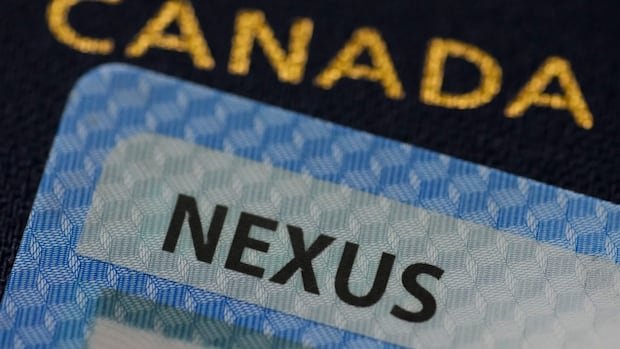Canadians seeking a new or renewed Nexus card are now required to choose either “M” or “F” as the gender marker on their applications, as the option for “X” has been removed. The Canada Border Services Agency (CBSA) announced this change following an executive order by U.S. President Donald Trump in January, which mandated that official documents like visas and passports in the U.S. only recognize male or female genders.
The alteration in the Nexus card application process was prompted by corresponding changes made by U.S. Customs and Border Protection (CBP), according to the CBSA. This change took effect in February, impacting the more than 1.8 million program members, predominantly Canadian citizens.
The Nexus program, a collaboration between the CBSA and CBP, facilitates expedited processing for cardholders at airports and land crossings. While many utilize the cards for international travel, some primarily enjoy reduced wait times for domestic travel within Canada.
Individuals with existing Nexus cards featuring an “X” gender marker will still have their documents honored, but they must select either “M” or “F” when it comes time for renewal or replacement. Trump’s executive order in February mandated federal agencies to only recognize “two sexes, male and female,” asserting they are unchangeable and rooted in fundamental reality.
In line with the presidential directive, the U.S. Bureau of Consular Affairs announced that passports will now only bear an “M” or “F” sex marker corresponding to the individual’s biological sex at birth, eliminating the use of the “X” marker for nonbinary individuals.
Canada began permitting the “X” gender marker on passports for those not identifying as strictly male or female in 2019. As of 2021, around 3,600 Canadians had availed themselves of this option. Despite the passport allowance, individuals with an “X” marker cannot select it on their Nexus cards.
Canadians with an “X” gender marker on their passport can still apply for a Nexus card, although the card itself will not feature that marker. Statistics Canada data indicates there are over 100,000 transgender or non-binary individuals nationwide.
The Canadian government advises individuals with gender-neutral passports that they may encounter entry restrictions in countries not recognizing their gender identity. Travellers are encouraged to understand the legal and social frameworks regarding sexual orientation and gender identity in their destination countries.
Advocacy groups provide information on the implications of Trump’s order for travel to the U.S. for individuals with an “X” gender marker on Canadian audio platforms.

